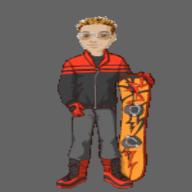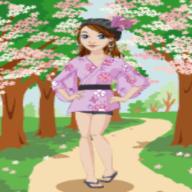我英文老師要我做闕於food,shopping,tour ism,tainsport的資料
help要資料
help me
2006-10-19 6:07 am
回答 (3)
2006-11-02 11:11 pm
✔ 最佳答案
FoodFood is any substance, usually comprised primarily of carbohydrates, fats, water and/or proteins, that can be eaten or drunk by animals (including humans) for nutrition and/or pleasure.[1]
Most cultures have a recognizable cuisine: a specific set of cooking traditions, preferences, and practices, the study of which is known as gastronomy.[2] The study of food is called food science. In English, the term food is often used metaphorically or figuratively, as in food for thought.
---> http://en.wikipedia.org/wiki/Food
Shopping
Shopping is the purchase of goods and services from retailers.
Shopping is considered a recreational activity of psychological interest. Shopping involves selection and purchase.
"Window shopping" is an American/English phrase meaning to look into glass windows of a shop for entertainment and imagine purchasing items without actually purchasing, possibly just to pass the time between other activities, or planning a purchase.
---> http://en.wikipedia.org/wiki/Shopping
Tourism
Tourism is the act of travel for predominantly recreational or leisure purposes, and also refers to the provision of services in support of this act. According to the World Tourism Organization, tourists are people who "travel to and stay in places outside their usual environment for not more than one consecutive year for leisure, business and other purposes not related to the exercise of an activity remunerated from within the place visited". The distance between a place of origin and a tourism destination is immaterial to this definition. Tourism has become an extremely popular, global activity. In 2004, there were over 763 million international tourist arrivals.[1]
As a service industry, tourism has numerous tangible and intangible elements. Major tangible elements include transportation, accommodation, and other components of a hospitality industry. Major intangible elements relate to the purpose or motivation for becoming a tourist, such as rest, relaxation, the opportunity to meet new people and experience other cultures, or simply to do something different and have an adventure.
---> http://en.wikipedia.org/wiki/Tourism
Trainsport
Transport or transportation is the movement of people and goods from one place to another. The term is derived from the Latin trans ("across") and portare ("to carry").
The field of transport has several aspects: loosely they can be divided into a triad of infrastructure, vehicles, and operations. Infrastructure includes the transport networks (roads, railways, airways, waterways, canals, pipelines, etc.) that are used, as well as the nodes or terminals (such as airports, railway stations, bus stations and seaports). The vehicles generally ride on the networks, such as automobiles, bicycles, buses, trains, airplanes. The operations deal with the control of the system, such as traffic signals and ramp meters, railroad switches, air traffic control, etc, as well as policies, such as how to finance the system (for example, the use of tolls or gasoline taxes).
Broadly speaking, the design of networks are the domain of civil engineering, architecture and urban planning, the design of vehicles of mechanical engineering and specialized subfields such as nautical engineering and aerospace engineering, and the operations are usually specialized, though might appropriately belong to operations research or systems engineering.
---> http://en.wikipedia.org/wiki/Transport
2006-10-21 9:47 pm
你用電腦嘅microsoft word翻譯
參考: myself
2006-10-19 9:51 pm
你都有電腦啦!!!容咩易搵喎
2006-10-19 13:52:16 補充:
我唔知你有冇電腦,唔好怪我
2006-10-19 13:52:17 補充:
我唔知你有冇電腦,唔好怪我
2006-10-19 13:52:16 補充:
我唔知你有冇電腦,唔好怪我
2006-10-19 13:52:17 補充:
我唔知你有冇電腦,唔好怪我
收錄日期: 2021-04-12 20:51:12
原文連結 [永久失效]:
https://hk.answers.yahoo.com/question/index?qid=20061018000051KK04879


